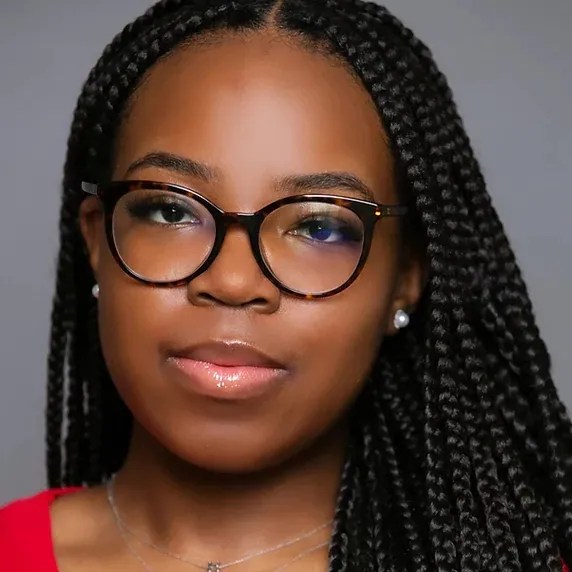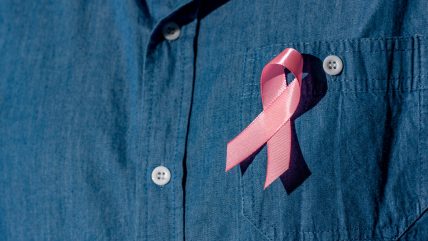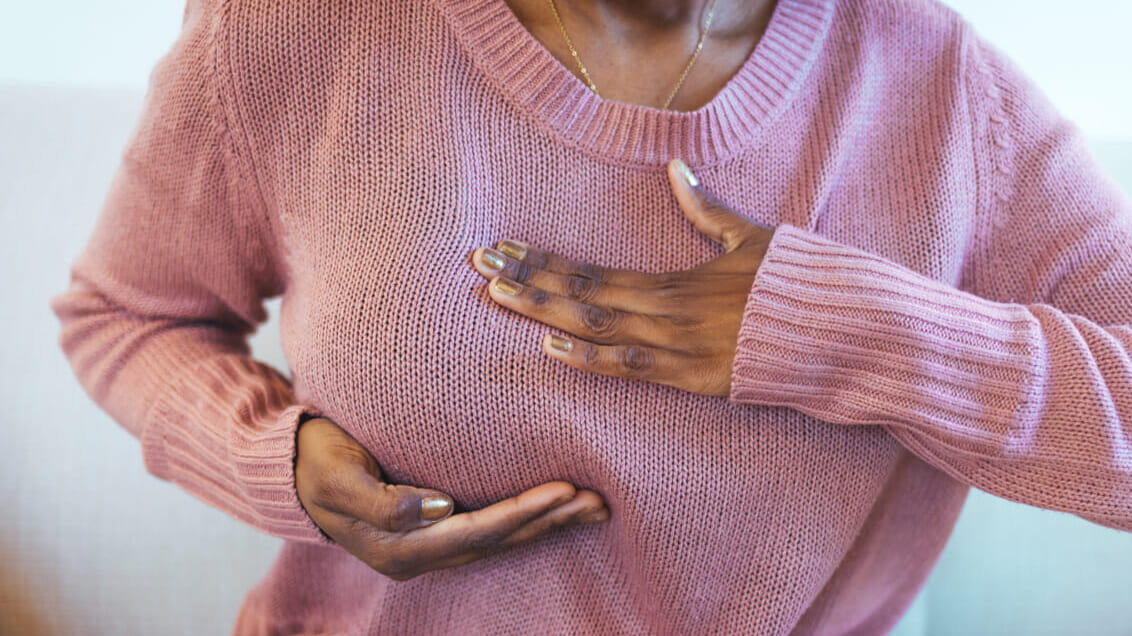De-pinking breast cancer, everything you need to know in honor of Men’s Breast Cancer Awareness Week
“Just because [men’s] numbers are few doesn't mean their voice doesn't matter,” Dr. Oluwadamilola "Lola" Fayanju told theGrio about male breast cancer awareness.
In the sea of pink ribbons that fill the month of October in support of breast cancer awareness month, there is one demographic of patients often overlooked in these conversations: men. Though men only make up a small percentage of breast cancer patients, the impacts of a diagnosis can sometimes be more detrimental for men than women. So much so that in 2021, President Joe Biden designated Men’s Breast Cancer Awareness Week to take place from Oct. 17 through Oct. 23.

To understand the nuance of male breast cancer, theGrio sat down with Dr. Oluwadamilola “Lola” Fayanju, the chief of breast surgery at Penn Medicine, the school of medicine and hospital at the University of Pennsylvania, who focused her research primarily on promoting equity and cancer care.
“There is increased interest in de-pinking breast cancer not only for cisgender men but also for transgender and nonbinary individuals,” said Fayanju about destigmatizing breast cancer for men. “When we brand certain spaces as women’s spaces, and we festoon everything with pink, who was excluded in those moments? Just because [men’s] numbers are few doesn’t mean their voice doesn’t matter, and their experiences shouldn’t be considered.”
This year, the Breast Cancer Research Foundation (BCFR) estimates that 2,800 men will be diagnosed with breast cancer in the United States. This number falls within the foundation’s overall 300,590 predicted breast cancer diagnoses for the year. Though the number may seem small in the grand scheme of things, research found that male breast cancer patients face a higher mortality rate than women (19%), with Black men being at an even higher risk than their white male counterparts.
“So the nice thing about male breast cancers is [that it is] uncommon,” Fayanju explained. “But of all breast cancers, only about 1% of breast cancers are in men.”
“Breast cancer in men tends to present at a later stage only because it’s more likely to be symptomatic when noticed because men aren’t typically undergoing screenings and mammograms,” she added.
According to Fayanju, “more advanced disease has worse long-term results or outcomes,” thus explaining the high mortality rates. However, she explained that when comparing male and female breast cancer on a stage-to-stage level (meaning both the male and female patients were diagnosed at the same stage), the difference margin is much smaller.
So, how can you get ahead of a breast cancer diagnosis?
“What we always tell men is it’s important that if you notice something wrong with your breast, don’t dismiss it or let other people dismiss it as it can’t be breast cancer because it absolutely can [be]. So it’s important for men to let their primary care provider know.”
In addition to doing regular checkups and communicating with your doctor, Fayanju says that it is important for both men and women alike to know their family history.
“Family history is a very strong predictor of the likelihood of breast cancer. About 5 to 10% of all breast cancers are genetic [which means] they are caused by a mutation we actually know. And then a larger portion, about 20 to 25%, are what we call familial, and that is [when] something runs in the family that’s causing breast cancer, but we don’t know what it is,” she added. “This is particularly important for those of us in the Black community because we are, relatively speaking, underrepresented in genetic databases.”
Knowing your family history and genetic testing not only gives patients the power to be proactive in their healthcare but also gives doctors and scientists more detailed information to care for patients properly.
Things to know if you do receive a breast cancer diagnosis
“The big takeaway is numbers are numbers, and you are you, so people should not despair, even if they find out their diagnosis in an advanced stage cancer,” Fayanju emphasized. “Everyone’s their individual self, and they shouldn’t fall back on those numbers and be afraid. They should still seek out treatment, and they should take the treatment that their doctors recommend.”
Now, Fayanju understands that sometimes bias impacts what treatments are offered to Black patients. However, when treatment options are offered, she has seen patients ignore medical recommendations out of fear of the unknown. Ultimately describing it as a two-way street, Fayanju encourages patients to seek second opinions and seek care at cancer centers or places with clinical trials in order to get the most cutting-edge, evidence-based treatments.
“It’s fine to get second opinions, but the internet is not a doctor,” explained Dr. Fayanju. “People should not be afraid to know that knowledge is power. So many people in our community will not [see doctors]. They’ll have their cancer just growing and growing and growing, and then suddenly it’s there. So men should not be afraid or embarrassed to know that that there is a mass in their breasts – there’s nothing unmanly about it.”
If you or your loved ones have concerns about breast cancer or general health matters, please remember to consult medical professionals.

Haniyah Philogene is a multimedia storyteller and Lifestyle reporter covering all things culture. With a passion for digital media, she goes above and beyond to find new ways to tell and share stories.
TheGrio is FREE on your TV via Apple TV, Amazon Fire, Roku, and Android TV. TheGrio’s Black Podcast Network is free too. Download theGrio mobile apps today! Listen to ‘Writing Black‘ with Maiysha Kai.


